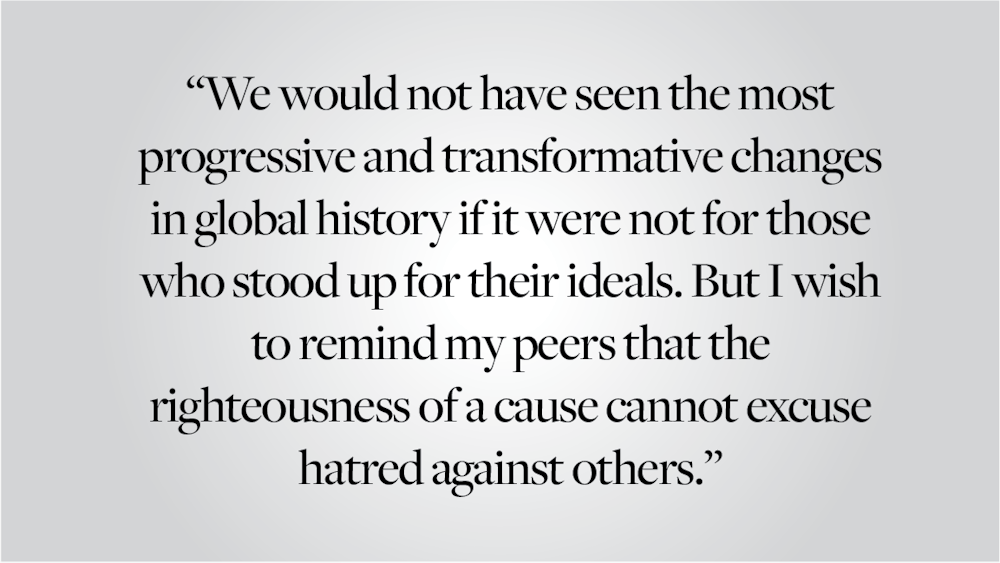On Feb. 17, members of pro-Palestinian campus groups at Harvard reportedly began circulating a cartoon on social media channels depicting boxer Muhammad Ali and former Egyptian President Gamal Abdel Nasser being hung by a golden chain held by a hand displaying a star of David and dollar sign.
Harvard administrators swiftly condemned the organizations for perpetuating antisemitism. The groups issued official apologies soon after, but many scoffed at the apologies, furious that such blatant antisemitism could “slip” by leaders of those groups. The organizations also quickly became fodder for satire writers at the Harvard Crimson, who mocked their apologies for being tone-deaf and ignorant.
Beyond the backlash, the root of the issue appears to be that leadership at these organizations failed to understand the cartoon’s antisemitic nature and allowed it to be posted. I see this failure as a symptom of a much larger problem: that a polarized and activist-oriented environment has blinded us to hatred.
I do not mean to criticize activism itself, but rather the fierce, often activist-endorsed rhetoric that too carelessly equates disagreement with hate. The Ivy League has become known for polarizing campus politics in the aftermath of the Oct. 7 attack, but the seeming inability to recognize antisemitism by such organizations is still cause for alarm. Some may see the Harvard cartoon as nothing more than an innocent mistake, but I respectfully disagree. This failure did not occur in a vacuum but was rather the culmination of rampant polarization and complete disregard for those on opposing sides.
Though Harvard’s recent events were isolated to its campus, I believe it is once again time for us to reflect on not just our commitment to freedom of expression but also the consequences of our rhetoric. I also believe the same warning signs are present on College Hill. Chants supporting the Yemeni Houthis, for example, demonstrate that our rhetoric has not only inflamed tensions but also painted the opposition as fundamentally hateful, implicitly justifying any hateful sentiments against them.
This is not to say that we are incapable of condemning hateful incidents; the campus community issued widespread condemnation of hate after an unknown intruder left an antisemitic note in an apartment shared by two Jewish students. What disheartens me is that after issuing our condemnations and reaffirming our support, we have continuously failed to reflect on our role in allowing these acts to take place.
Perhaps we are desensitized to criticism nowadays in light of torrential accusations by commentators, but we must carefully examine the repercussions of our rhetoric. As Brown students, we play an outsized role in activist culture by virtue of the media attention we draw, as evidenced by activists at countless other universities who have followed our lead. We have real influence, and we must use it to properly and fully condemn all forms of hate, regardless of political opinion. As leaders in these historic times, we must ask ourselves frankly: To what extent are our words responsible for the increase of hate on college campuses?
Activism is a quintessential part of Brown, and I greatly admire our commitment to the issues dear to us. We would not have seen the most progressive and transformative changes in global history if it were not for those who stood up for their ideals. But I wish to remind my peers that the righteousness of a cause cannot excuse hatred against others. If history will not kindly judge those who stood idly by during a genocide, neither will it kindly judge those who promoted hate.





